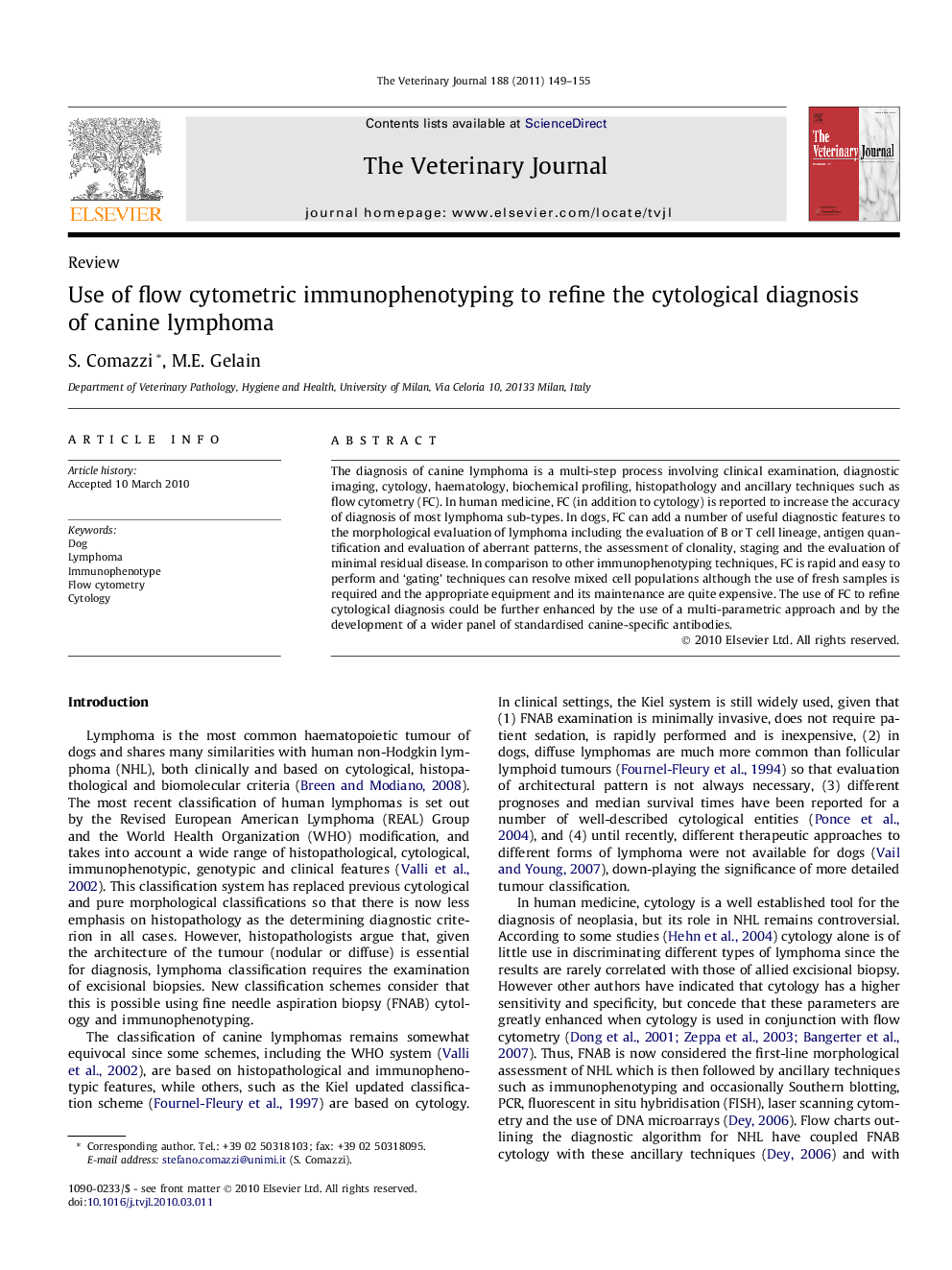| Article ID | Journal | Published Year | Pages | File Type |
|---|---|---|---|---|
| 2464716 | The Veterinary Journal | 2011 | 7 Pages |
The diagnosis of canine lymphoma is a multi-step process involving clinical examination, diagnostic imaging, cytology, haematology, biochemical profiling, histopathology and ancillary techniques such as flow cytometry (FC). In human medicine, FC (in addition to cytology) is reported to increase the accuracy of diagnosis of most lymphoma sub-types. In dogs, FC can add a number of useful diagnostic features to the morphological evaluation of lymphoma including the evaluation of B or T cell lineage, antigen quantification and evaluation of aberrant patterns, the assessment of clonality, staging and the evaluation of minimal residual disease. In comparison to other immunophenotyping techniques, FC is rapid and easy to perform and ‘gating’ techniques can resolve mixed cell populations although the use of fresh samples is required and the appropriate equipment and its maintenance are quite expensive. The use of FC to refine cytological diagnosis could be further enhanced by the use of a multi-parametric approach and by the development of a wider panel of standardised canine-specific antibodies.
